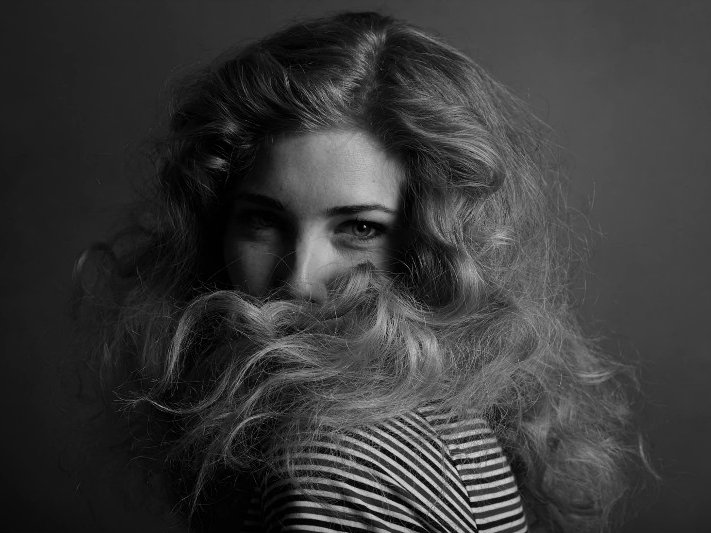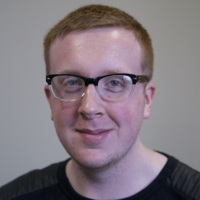For singer-songwriter Caroline Smith, music has always been an integral part of her life.
Growing up in large Irish family in Detroit Lakes, Minn., Smith and her family would sit around, play guitar and sing old Irish folk songs. In fact, her father – a physician assistant – was in a band with a surgeon and a nurse, and Caroline's mother introduced her to a variety of classics. For Smith, following her father’s ambition for music and her mother’s musical taste wasn’t a conscious thought. It all just happened naturally. For her, writing songs and playing music was just something she did and has been doing over the last several years.
Now with four albums, including 2013's "Half About Being A Woman," she has transitioned into her own self as a woman and as an artist with newfound confidence. With this confidence is a sound much different, a sound which Smith herself and everyone else can appreciate and sing along to alone in a car.
OnMilwaukee.com recently chatted with Smith before her show at Shank Hall on Friday, May 1 about her musical beginnings – including a four-hour gig at a pizza and Mexican restaurant in her hometown – her last record, her collaboration with her friend and fellow musician Lizzo, and her charity work.
OMC: Let’s go way back. How old were you when you first started writing music?
CS: The funny thing is that I don’t even remember how I learned to play guitar. My dad says that we went out fishing on the lake, and he taught me how to play "Margaritaville" on the guitar, but I don’t remember. It was an angsty time in my life, you know, when you’re 13 and you’re starting to like boys. When people had their diaries, I would just write songs.
OMC: I once read that your mother was the first person to get you your first gig, and it was at this restaurant in Detroit Lakes. What was that experience like?
CS: I remember I was very nervous, and they had me play for four hours from 9 a.m. to 1 p.m. My mom just sat there like a trooper the whole time.
OMC: You had enough material to play for four hours at the time?
CS: There were a lot of Dave Matthews covers (laughs). It was covers that everybody knew like classic songs I grew up listening to. At that point, I probably had two hours of my own material. I don’t play any of those songs anymore because they’re all pretty dramatic and really immature.
OMC: What did you like to listen to growing up? Did any of these artists have any influence on your own material?
CS: I land in between the music that my mom listened to and the music that my generation grew up listening to and that kind of defines me as a songwriter. I grew up with my mom listening to a ton of Paul Simon, Carly Simon, Carole King, Whitney Houston, Aretha Franklin, The Beatles and stuff like that. She was always like, "You got to write songs like this. These are timeless." At the same time, I was like, "Yeah, whatever, mom. Do you know how great ‘N Sync is?" (Laughs).
OMC: I read when you were 18 years old, you started residency at Minneapolis’ 400 Bar, which is an important venue that has helped shaped the career of other musicians. What was that experience like performing at that venue on a weekly basis?
CS: That was a great experience. No one was really coming to the shows, which at the time sucked. But it allowed my draw to build and to grow but also while there weren’t a lot of people coming to the shows, I really learned a lot about being a musician in the industry through trial and error … like to be a responsible touring artist. When I became a touring artist, I had that experience and watching other touring artists come through and what was helpful for them. I worked with people that weren’t scared to call me out and to give me an education on being an independent artist. That was a huge building block for the musician that I’ve become.
OMC: That was the venue where you met the guys of The Good Night Sleeps, correct?
CS: Yeah. My drummer … I don’t know how it came about exactly, but I was like, "Yeah it would be cool to play sometime." He was like, "OK, I’ll bring my drums." He started drumming with me. For a while, it was just drums and a guitar, but then we added the bass player and added some keys.
OMC: When you were with The Good Night Sleeps a few years ago, how has that time with the band influenced your music?
CS: Some of the members of The Good Night Sleeps are still playing with me. What it has taught me is that how important it is to have people who care about you and you care about surrounding you from the very beginning. They’re definitely my best friends and they care deeply not just my career and not just my music, but about me as a person. If we were to ever hit rock bottom or something like that, they’d be right there next to me. I definitely wouldn’t be where I am without their support and encouragement.
OMC: Just to verify, contrary to what I’ve read elsewhere, you and The Good Night Sleeps didn’t break up, correct?
CS: Our outfit kind of changed a little bit and our sound totally changed. At that point, they were like, "We really don’t like the band name." I was like, "Really? I thought you guys needed it to feel represented." They were like, "No. We don’t really like it." Then I was like, "So should we just drop it?" They were like, "Yeah. Yay!" Then it was just the solo thing, which makes sense because the music changed so much that it felt like a new chapter.
OMC: Let’s talk about your last album "Half About Being A Woman." This time around, you’re no longer with The Good Night Sleeps, but now you have your own brand that’s been described as R&B soul that’s infused with indie folk. What led you to the decision to branch off and try something different?
CS: I had this really natural thing in my life happen where I just started accepting who I am; accepting what I look like, accepting my personality, my ups and my downs. I think it’s a natural thing that happens to women at a certain age. Mine happened at 25. My music reflected that in a way where I started writing music that was more genuine to who I am as a person.
Everybody looks back at who they were when they were 18 and kind of does like a face palm like, "Ugh, why did I do that?" It was just playing music that didn’t really reflect who I am as a person. The music that I had been playing and writing with the band was not anything that I listened to in my car alone or something like that. I was like I want to write music that makes people feel good because that’s the kind of who I am as a person.
OMC: This past fall, you and Lizzo recorded the single, "Let ‘Em Say" and have set up a Band Camp page where fans can pay what they want for the track. How did that collaboration come about?
CS: We’re really good friends, and we had talked about doing a show together and we got the show locked in and were kind of thinking of fun ways we could promote the show and I was like, "We can do a track." We had both been wanting to give back somehow, so the idea of making a track and giving the proceeds to the Women’s Foundation for the both of us felt really natural and right. It was fun. We made a really awesome song that we both really enjoy a lot and shared it with the world.
I think we did a really good job encapsulating what our friendship is like and what kind of women we are. It’s a song that I hold close and dear to my heart. It’s fun and carefree. The words are empowering for other women and I think and that’s something we try to do.
OMC: What is the message behind the track?
CS: Mostly that keeping moving on with your life and be a confident person no matter what other people are thinking about you. You can’t live your life like that. I think a lot of women experience that.
OMC: How did you get involved with the Women’s Foundation?
CS: I’ve wanted to work with a charity for a while because being a musician … especially an independent musician where you do a lot of your own stuff, all you think about all day is you. I was like, "I’m feeling a little crazy. I need to give back and do something." This is such a perfect opportunity. The message of the Women’s Foundation of Minnesota is so congruent with mine. What they do is that they help give a platform to young women to give them leadership skills and the power to have their own voice.
Colton Dunham's passion for movies began back as far as he can remember. Before he reached double digits in age, he stayed up on Saturday nights and watched numerous classic horror movies with his grandfather. Eventually, he branched out to other genres and the passion grew to what it is today.
Only this time, he's writing about his response to each movie he sees, whether it's a review for a website, or a short, 140-character review on Twitter. When he's not inside of a movie theater, at home binge watching a television show, or bragging that he's a published author, he's pursuing to keep movies a huge part of his life, whether it's as a journalist/critic or, ahem, a screenwriter.







